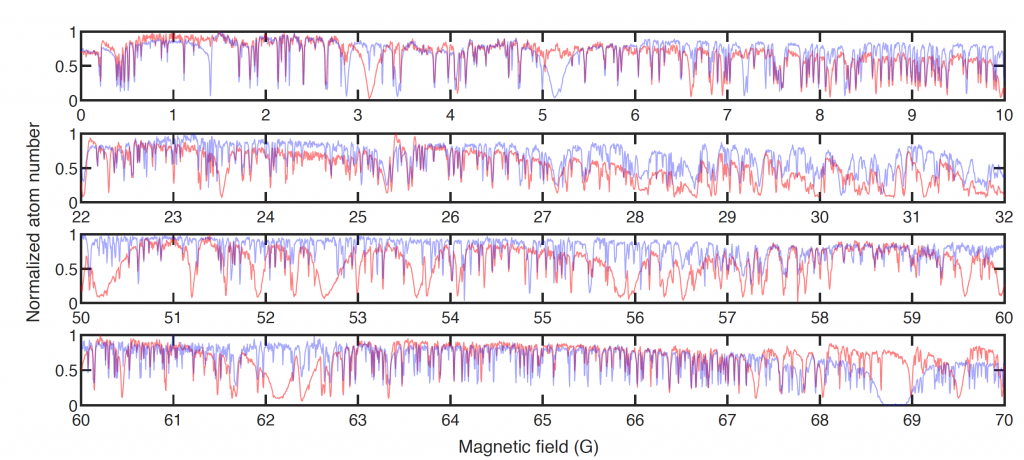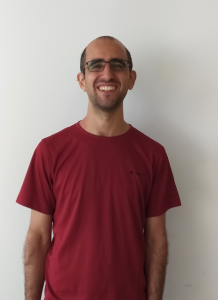
Long-Range Interactions Workshop 2025
Register now for the Long-Range Interactions Workshop 2025!

2025 Group Openings!
We are happy to announce that our dipolar quantum gas group has an Academy Scientist + Postdoc and PhD positions open for 2025!

Vortices in a supersolid
2024’s Biggest Breakthroughs in Physics: Our research on the observation of vortices in a dipolar supersolid featured by Quanta magazine!

Austrian of the Year 2024
Francesca was crowned as the ‘Austrian of the Year’ in the research category at the Austria 24 gala by Die Presse!

Summer BBQ
Our 2024 Summer BBQ took place on the 24th of June and celebrated the many different achievements of the group!

Murder Mystery Dinner
Our 2024 group dinner took place on the 18th of January at CasoinN da Giorgio restaurant, with a 1920’s Murder Mystery theme!

Glitches in supersolids: links between neutron stars and quantum matter
By emulating the connection between a rotating supersolid phase and an external solid phase, we were able to replicate “glitches” – sudden jumps in the solid angular momentum driven by quantum vortices leaving the supersolid.

Cluster of Excellence Quantum Science Austria granted
Three Clusters of Excellence in Innsbruck have been funded! With highly endowed clusters of excellence, the Austrian Science Fund FWF creates Austrian flagships of basic research. The University of Innsbruck will coordinate the Cluster of Excellence for Quantum Sciences.

Bloch Oscillations
By letting an erbium quantum droplet fall under gravity through an optical lattice, it is possible to understand the inter-atomic interactions and quantum fluctuations through variations of the Bloch oscillation.

ERC Advanced Grant DymetEr has been funded!
Our group studies dipolar quantum gases made of Erbium (Er) and Dysprosium (Dy) atoms. These extraordinarily magnetic species are a powerful new resource for reaching quantum simulation with strong connectivity, in which each atom is coupled to the other over long distances, and exploring exotic phases of matter that have no classical counterpart.
We have three labs: the ERBIUM LAB, where Er was Bose condensed for the first time ever, the Er-Dy LAB which studies quantum dipolar mixtures under a quantum-gas microscope, and the T-REQs LAB, where we trap Er atoms in arrays of optical tweezers for Rydberg physics. Recently, we have established a Theory Group aimed at studying and predicting dipolar phenomena in dipolar quantum gases and mixtures.
The group, led by Francesca Ferlaino, is jointly located at the Institute for Experimental Physics (IExP) of the University of Innsbruck and at the Institute for Quantum Optics and Quantum Information (IQOQI) of the Austrian Academy of Sciences, and it is part of the Innsbruck Center for Ultracold Atoms and Quantum Gases.
Follow our group’s updates on  Bluesky!
Bluesky!
News from the labs
We have measured and analyzed the hyperfine structure of two lines, one at 583 nm and one at 401 nm, of the only stable fermionic isotope of atomic erbium as well as determined its isotope shift relative to the four most-abundant bosonic isotopes. Our work focuses on the J→J+1 laser
Keep Reading ...
We report on the experimental realization of a robust and efficient magneto-optical trap for erbium atoms, based on a narrow cooling transition at 583 nm. We observe up to N=2×10^8 atoms at a temperature of about T=15 μK. This simple scheme provides better starting conditions for direct loading of dipole
Keep Reading ...
Group news
Our publication on the first-time observation of roton quasiparticles in quantum gases was chosen by the editors of Nature Physics as one of their favorite papers of the past 15 years. To mark the anniversary of the journal, the most important works in the various disciplines of physics are presented.
Keep Reading ...
A key step in creating controlled interactions in dipolar quantum mixtures is the characterization of interspecies Feshbach resonances.
Keep Reading ...
Hagai has been awarded a postdoctoral fellowship for quantum science and technology from the Israel Council of Higher Education. As a postdoc, Hagai will study highly excited Erbium atoms trapped in a tweezer array in the T-REQS lab of Francesca Ferlaino.
Keep Reading ...
Welcome and goodbye
 Bluesky!
Bluesky!












